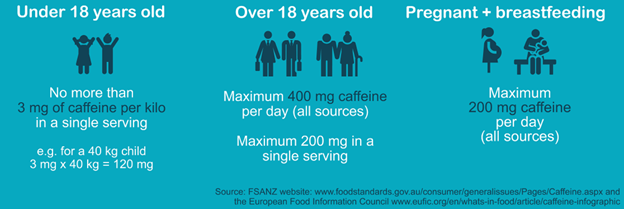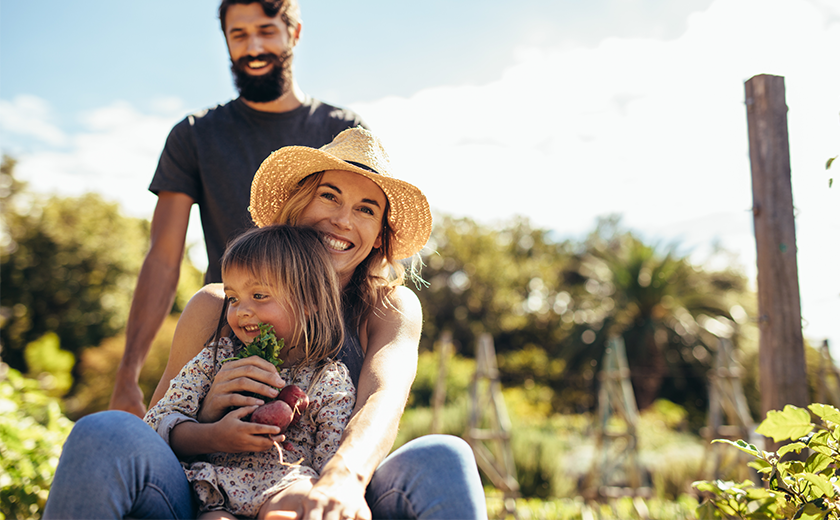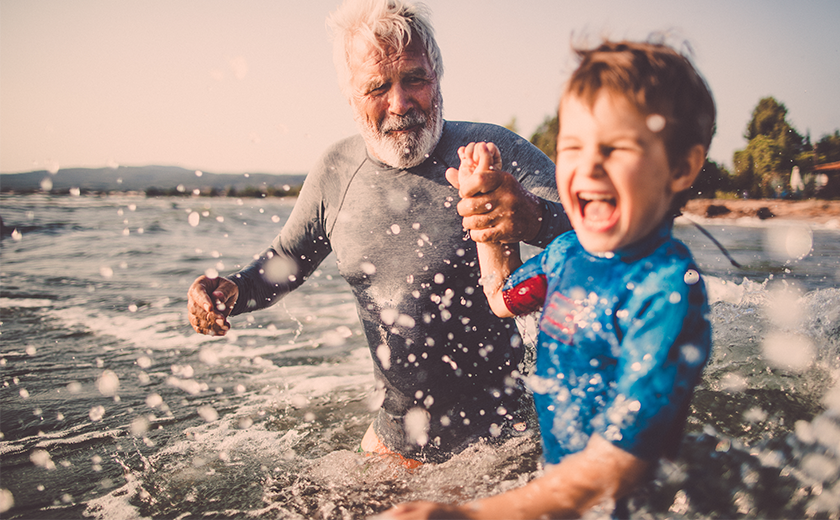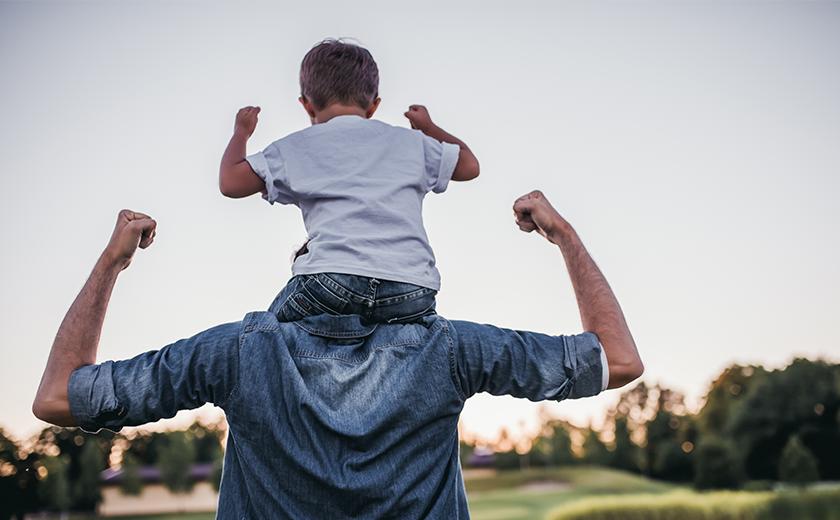Top up your gut health
We’ve done a sweep of the latest news to show you the evidence-backed ways to radiate good health with the simple benefits of prebiotics and probiotics.
Most Australians drink at least a coffee a day (75%) and upwards of one in four drink three or more cups of coffee according to 2017 research.1
Caffeine is the stimulant found in high concentrations naturally in coffee, tea and dark chocolate. It’s also a common additive in energy drinks.
Caffeine in coffee can vary widely. So can the studies.
One of our most trusted sources here in Australia, healthdirect, says an espresso is 50 ml.
European studies tell us it’s a little more than that. The European Food Safety Authority (EFSA) claims an espresso is 60 ml.
Coffee lovers know that an espresso is between 25 and 30 ml. The reason that’s important for us Australians is that we want to know the correct serving size and match it to a safe caffeine intake. The difference between a single espresso and a 60 ml double shot is too significant for us to overlook.
Thankfully the good people at the University of Newcastle Australia filled the void with a 2018 study of caffeine in a 30 ml espresso using single origin Colombian beans. That’s what I’ve used as the first row in the below table while the rest of the figures are from healthdirect:
|
Food & drink |
Caffeine (mg) |
|---|---|
|
Espresso (30 ml) |
126 |
|
Energy drink (250 ml can) |
80 – 100 |
|
Instant coffee (1 teaspoon) |
60 – 80 |
|
Dark chocolate (50 g bar) |
60 |
|
Black tea (250 ml cup) |
50 |
|
Cola (375 ml can) |
50 |
|
Milk chocolate (50 g bar) |
10 |
Sources: healthdirect.gov.au and newcastle.edu.au
Coffee drinkers will know their limits. Anxiety is a pretty common symptom of too much caffeine as is sleeplessness and restlessness.
Get the balance right though and you can get the short-term benefits of boosted mental alertness and energy.
As with every drug, not everyone should take it and your doctor will have the best advice on that.2
These are the current recommendations from Food Standards Australia New Zealand:

Three espressos (~378 mg of caffeine) for most people, according to The University of Newcastle while healthdirect says two, potentially based on a larger serving size.
The recommendation for children means that they probably shouldn’t be drinking full-strength espresso but perhaps might be able to drink an instant coffee (depending on their weight in the guidelines above).
healthdirect says that pregnant or breastfeeding women should limit themselves to one espresso, two instant coffees or four cups of tea a day.
If you’re teetering on the edge of the maximum coffee intake, you should avoid eating chocolate and drinking energy drinks and cola.
Ultimately, how much coffee you have is a personal choice based on how it affects you. There’s no dietary need for us to drink coffee or consume caffeine, so you can cut it out completely if that suits you.
1mccrindle.com.au/insights/blogarchive/australian-attitudes-towards-coffee/

We’ve done a sweep of the latest news to show you the evidence-backed ways to radiate good health with the simple benefits of prebiotics and probiotics.

You’ve got a niggle and you just want to get it sorted as fast as possible. Here’s some info on where to get it sorted.

You may have already quit sugar and reduced your red meat portions but did you know that you may need to cut back on salt too? We have a salty problem. That seasoning that Gordon Ramsay wants you to smother your food with is doing your body harm.